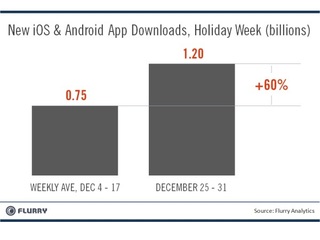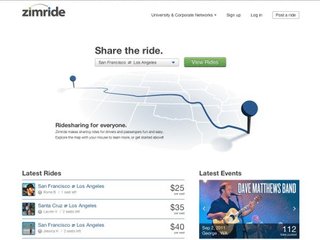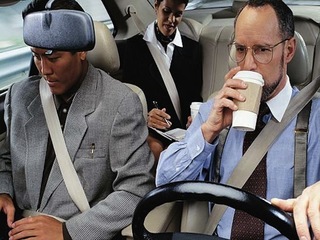DUOS expands AI capabilities to help seniors apply for assistance programs
It will complete and submit forms, and integrate with state benefit systems
Read more...
With so many people looking to be eco-conscious and spending savvy, the daily commute is often where people can make the biggest difference. Thankfully, there have been several ride-sharing sites that have cropped up over the past year or two to give people the ability to crowd-source their commute to and from work.
One company, Ridejoy, however is looking to be the tool for crowd sourcing longer trips -- defined as trips over 15 miles. Drivers can post when they are making these trips and sell their extra seats to riders for cheap. There are currently 3,000 active rides listed and now the company has just released its iPhone app to make this process even easier.
Ridejoy’s new free app allows users to post rides, search for rides by destination, review driver profiles and coordinate trips with just a few clicks.
The company is also ready to expand its geographical footprint throughout the U.S. and Canada by helping people to easily find trustworthy drivers headed to big events such as Burning Man. In fact, Ridejoy grew out of BurningManRides.com, which the company’s co-founder Kalvin Wang created in 2010 to assist in making ride lists for groups headed into the desert.
Ridejoy finally launched in the summer of 2011 and, within months, saw nearly 1,600 rides posted.
Considering that nearly 2.3 billion long-distance trips occur each year, and 76% of those are in single-occupant vehicles, there is a lot of room for improvement on gas consumption and expense-sharing.
Right now, about 75% of the users come in through Facebook, where Ridejoy can vet the person and then users are able to review and reference the driver as well.
Other cool features include route shadows which will alert you when someone else is taking the same route to a city as you and you can share photos, bios and other driving info and we all are browse other people's itineraries.
Ridejoy also takes some of the guess work out of the pricing arena by suggesting a a price before each trip (which drivers can change). Most trips on Ridejoy cost $35 or $40 and the company caps the amount that a driver charges per mile to 50 cents.
So how does the company make money, you may ask? They take a percent, of course. Ridejoy get a 15% cut on each credit card transaction that occurs through the site.
I say its a little steep but gas prices are where they are and any help is likely very welcome.
Other ride-share news
Earlier this year, the European-based BlablaCar announced that it scooped up $10 million from Accel Partners and existing investors to grow the car-sharing service. ISAI and Cabiedes & Partners also participated in the round that brings the company's total funding to near $12.5 million.
BlablaCar allows users to register their car and the trips that they plan on taking then other members that intend to be passengers can search and contact drivers that are making the same trips that you are interested in taking.
While being a member of the service is free, drivers can charge a fixed price per passenger -- which tends to average near €20 per ride. BlaBlaCar has online booking in France only, but in the French market it is the only market with the option for payment.
BlablaCar is only available in the UK, Italy, France and Spain -- at least so far -- but the funding will help them expand the service to more areas in Europe.
BlablaCar has approximately 2 million users and 500,000 drivers offering seats. Ten million seats have been offered since 2009 and approximately 1.8 billion miles shared.
The company estimates that users have communally travelled one billion miles and at least 8 million passengers have been transported since the company launched in 2009.
CEO Frederic Mazzella created this service as more of a travel site rather than one that is used as a daily commuter assistant.
Users are rated on the site, to assist in credibility and accountability, and members with negative ratings are removed from the service.
BlablaCar is similar to some of the ride-sharing companies founded in the US such as Ridejoy and ZimRide.
Back in August 2010, ZimRide raised $1.2 million in seed funding from Floodgate, K9 Ventures, and various angels. Since then, Zimride has grown its user base to more than 120 university and business networks and has helped coordinate over 26,000 carpools by September 2011. The company announced last fall that it raised an additional $6 million in a Series A round of funding led by The Mayfield Fund, with participation from Floodgate and K9 Ventures, bringing its total raised to $7.5 million.
The average ride through Zimride is 175 miles -- there are even several multi-day cross-country trips that pop up, including one that was going for $125 a seat (drivers can set the prices for their seats).
As airfare continues to nickel and dime travelers, we may see an even bigger demand for sites that help people band together to make getting to their desired destination even easier.
It will complete and submit forms, and integrate with state benefit systems
Read more...The bill would require a report on how these industries use AI to valuate homes and underwrite loans
Read more...The artists wrote an open letter accusing OpenAI of misleading and using them
Read more...Startup/Business
Joined Vator on
Ridejoy is a community marketplace of friendly people sharing rides. We help drivers and passengers connect and get where they need to go in a fun and cost-affordable way.
Ridejoy currently helps thousands of people find rides between 300 cities on the West Coast from Vancouver, BC to Seattle, Portland, San Francisco, Los Angeles, San Diego, Reno/Tahoe and Las Vegas.



